Vitals Global Healthcare will ensure equity of care when it comes to NHS patients and paying patients, VGH Vice President of Operations Dr Nadine Delicata said during an interview with The Malta Independent on Sunday.
The issue of private patients being treated alongside public patients has raised concerns that some patients might receive preferential treatment. Asked about this, Dr Delicata said: “A patient is a patient, regardless of where he or she comes from.
“We would like to raise the quality bar across the board. There will not be separate wings for public and private patients. If a patient is a cardiology patient, whether NHS or paying, he or she will be treated in the same ward by the same nursing staff, the same resources and the same medics. That is how we will ensure that there is an equity of care across the board and the same will apply to elective surgery.
“We do treat some paying patients now, in the sense that there are third-country nationals who walk through the door and are not entitled to free treatment, and we do not make a distinction.”
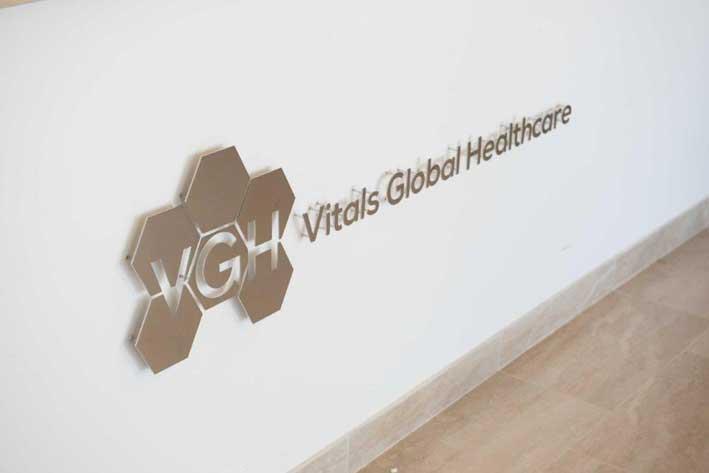
As for the amounts paying patients would need to pay for treatment, Dr Delicata did not have any figures as yet, saying that she cannot offer prices today for something that is not yet being offered. “It will depend on market rates and when we start.”
Recently, the Medical Association of Malta General Secretary Martin Balzan told the press: “VGH has started recruiting staff with complete disregard to the collective agreement procedures.” Concerns have also been raised about a possible difference in pay.
Questioned on this issue, Dr Delicata – who is also Gozo General Hospital CEO, said: “When we recruited doctors, we ensured that their conditions working for VGH were made clear to them. We did not apply the same collective agreement conditions as the MAM did for government employees, but conditions that were deemed more adequate to enable VGH to fulfil its commitments to the Maltese government under the PPP arrangement.
“It is true that we did not apply the same collective agreement conditions, but the conditions and responsibilities are different for these doctors. As an organisation, we tried to align the employment contract with the different conditions and responsibilities.”
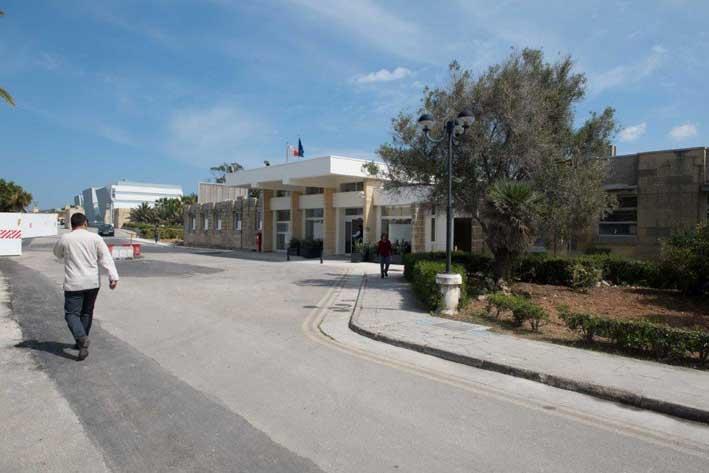
Some doctors have also expressed concern about a difference in pay. “We have tried to keep the take-home pay similar between both government employees and those employed by VGH,” said Dr Delicata. “Having said that, their working conditions are different. The collective agreement payment mechanism is based on sessions, so one agrees on the number of sessions and anything extra will require extra remuneration. With our employment mechanism, it’s more of an overall package that one accepts, but there is no sessional payment mechanism for any extra sessions.”
She said that negotiations between the MAM and the government are ongoing, “and we are hopeful that this will lead to a positive outcome.”
New Gozo Hospital will take two years to complete from commencement of construction
Turning to construction times regarding Barts Medical School and the new Gozo hospital building, Dr Delicata said that the new Gozo General Hospital building would take two years to complete, once construction begins. She said that the Barts Medical School will take around a year to construct.
The new acute bed hospital will be built close to the existing main building, she said, adding that all acute services will be transferred there, once it has been build. “We will then refurbish this building [the current main building] to be our long-term care, outpatient and rehabilitation building. In total, we will reach 450 beds, 250 of which will be acute care beds.”
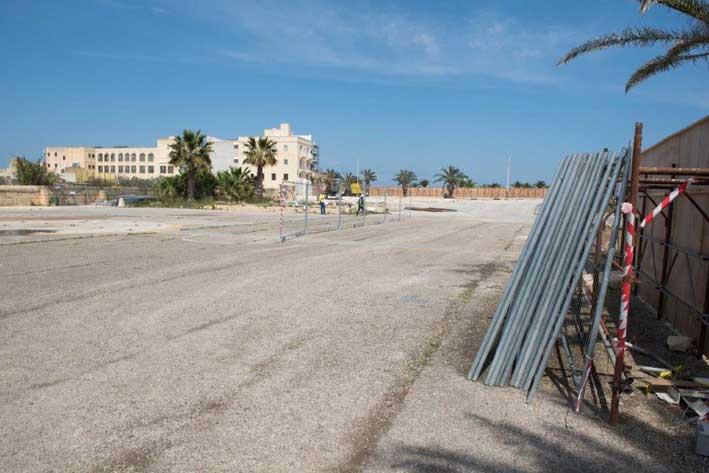
Asked whether or not Gozo Hospital has already expanded the treatment it offers, and whether it will expand from the current treatments offered in the near future, Dr Delicata said: “At the moment, the hospital has just over 100 acute care beds and just under 300 beds in total, with the remainder being long-term care beds and beds used for psychiatry.
“At the moment we are somewhat constrained in terms of bed numbers, so to significantly expand and develop clinical programmes we need to have the new hospital up and running, to provide more beds. But we are gearing up to significantly increase services in orthopaedics, surgery and trauma, cardiology and oncology, and that is the VGH vision. We are developing as one unit, so even though the hospitals are spread over two islands, we are developing them as one campus. They will be the main areas in which we will develop services. There will also be a women’s health department at St Luke’s Hospital, as well as one for dermatology.
“Here”, she said, “the plan is to reduce as much as possible the need for Gozitan patients to travel to Malta for treatment, but obviously this will not be possible in every single case as Mater Dei Hospital will remain the tertiary referral centre. Gozo does not wish to compete with Mater Dei – that is not our intention. We aim to complement each other. There will be certain areas where the VGH will take the lead and others where Mater Dei Hospital will retain the lead. But we would like to expand our services so that at least at the secondary level, the non-super-specialised level, we offer as much care for patients in Gozo as possible.”
Speaking about cardiology, while it is planned for the unit to expand in Gozo, there will also be a service at St Luke’s Hospital, said Dr Delicata.
She confirmed that there has not been any government capital investment in Gozo since VGH took over, and that the Construction of the Barts Medical School is being paid for by VGH.
Dr Delicata explained that no beds have yet been used for medical tourism, “precisely because bed management is still a daily challenge for current needs, let alone for additional needs.”
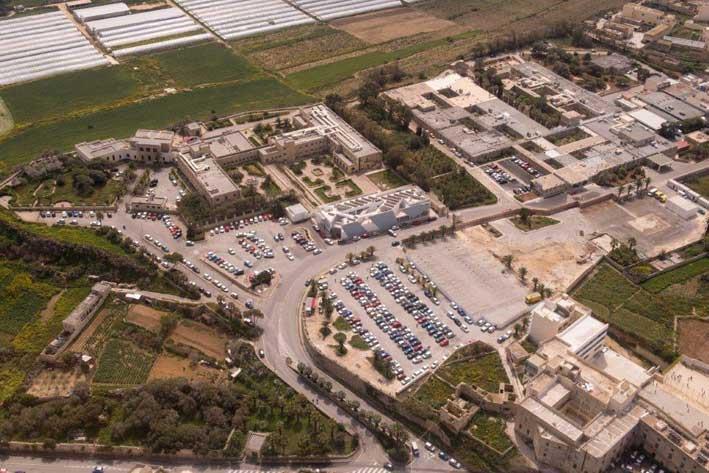
10,000 patients per year
Discussing the number of patients who come to the Gozo General hospital, she said: “We have a throughput of around 50 patients a day in the emergency department and, where admissions are concerned, we have around 10,000 a year coming to the hospital.”
Dr Delicata is aware of Gozo’s ageing population, and she said that the hospital is targeting services accordingly. “We are looking at the development of clinical programmes and expansion with Partners Healthcare International and targeting services accordingly. For example, we launched a urology service around a year ago. We have a visiting urologist from Mater Dei Hospital who comes over twice a week, and demand has shot up. In fact, there is a waiting list, which is not desirable, and we know that the service needs to grow. Urology is a field associated with an ageing population.”
She hopes, however, that the plans VGH has for the hospital, in conjunction with the construction of Barts Medical School, will help change the situation. “I think this project is beneficial for Gozo as a whole, and the spill-over effects on the economy will be positive. This is not a seasonal-based project, it is year-round. We aim to attract people to live in Gozo, teach here, etc.,” she said.
Asked about the nursing shortage, Dr Delicata said: “We definitely need to plug the shortage – which is evident across the board – until we see the first group of nursing graduates complete their course [referring to the new MCAST-VGH nursing course]. If Gozo has 50+ vacancies in nursing, I shudder to think what the vacancies in Mater Dei Hospital and the other entities in Malta are. Recently, a call was made for third country nationals to express an interest in nursing with the aim of starting to build up local nursing educational programmes sufficiently, so that they can address the demand there is.”
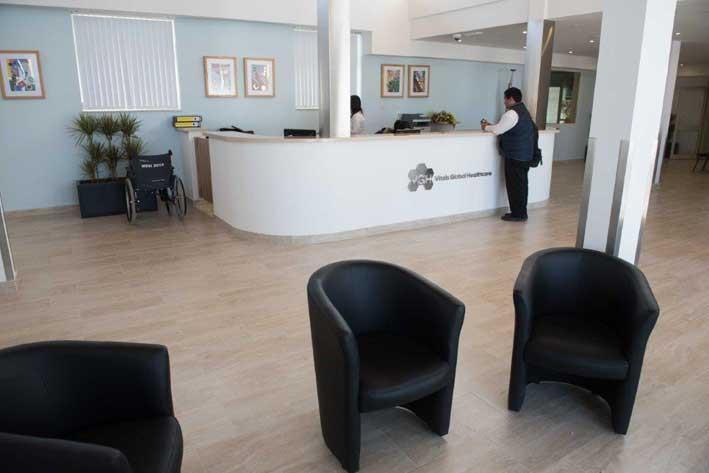
She explained that Gozo Hospital needs to start thinking of itself as a teaching hospital. “For example, we need to develop what we call ‘firms’ (usually consisting of a consultant, a registrar, an FY2 and an FY1). In Gozo for a long time, there have just been consultants, with a junior doctor beneath them, and no other levels in-between. This is obviously something we need to address, so there will be many openings for doctors in the various grades to ensure we have the needed capacity to teach the students and have a beneficial effect on the service.“ Asked whether there is an agreement with Barts for VGH to take a percentage of graduates from them, she said that she is not aware of such an agreement.
One possible issue with the medical school could be that students would need to move between Gozo and Malta for training. Asked how they plan to address this issue, she said: “Barts plans its curriculum around different London hospitals, where sometimes the travel-time required between campuses is longer than what we envisage between Malta and Gozo. Quoting Professor Anthony Warrens, it’s clearly not an issue. We will try and maximise the efficiency of the training placements, so that the students placed in St Luke’s, Mater Dei Hospital or Gozo will ideally not have to travel to a different location in the same day. Don’t forget that training placements are batched, and it would basically be a rotation of these placements. We are learning from the expertise Barts has had in London.”
Asked whether VGH is considering moving into the primary care sector in the near future, Dr Delicata said: “I’m not aware of anything of the sort. I think we have enough to do at the moment and we need to concentrate on what we are doing.”
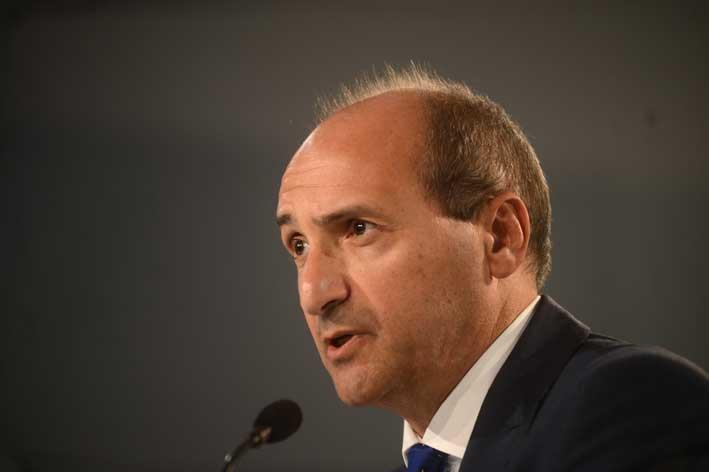
Recently, Health Minister Chris Fearne said that around 30 pages worth of blanked out clauses were part of a separate agreement between VGH and Barts. Asked whether VGH is willing to release it, Dr Delicata said that she believes it was the government that took the decision regarding which pages to blank out. She said that this was Barts first venture outside London, “and there are probably some commercially-sensitive details in there that, even if in the future, they would not want to necessarily have published. Everything taken out of the contracts was commercially sensitive. If you are a private company in London and open shop in Malta, it’s not in your interests to tell everyone how much you are paying.”
Turning to the primary care system in Gozo, she said: “The primary care system in Gozo is still basic compared to the one in Malta, so we don’t have a care centre like those found in Malta. We have a primary care centre but it is very small so most cases end up being referred to our emergency department, from where they will either be admitted to a ward here for treatment and care or to Mater Dei.
“Having said that, there is a collaborative spirit between us and Mater Dei Hospital, as well as other healthcare institutions. For example, there was some industrial action recently at the central sterilisation department at Mater Dei Hospital, where they only sterilise instruments for that hospital. As such, Gozo General Hospital has taken over the sterilisation of instruments for Karen Grech Hospital, primary care centres and, potentially, even Mount Carmel Hospital.”
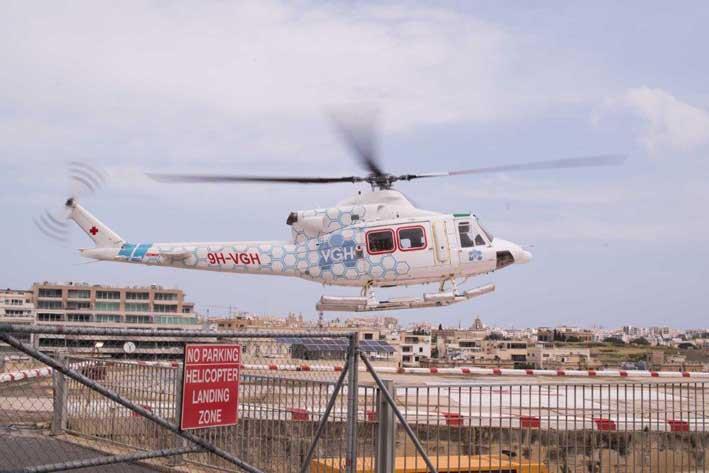
On the subject of waiting times in the emergency department, she said that Gozo Hospital is a smaller hospital, serving a smaller population. “Having said that, we do see an increase in waiting times during busy weekends, such as weekends when many Maltese come to Gozo. So, yes, we do see an increase, but it’s never beyond the national recommendation. So people are generally seen within a maximum of four hours. Normally, on a bad day, this would be two hours, and it is rare that someone would have to wait for four hours.”
In view of the fact that a helicopter is used to transport patients who are not able to be cared for at Gozo General Hospital, Dr Delicata was asked if Gozo Hospital will be able to handle critical situations – in which patients are currently flown to Mater Dei – in the foreseeable future.
“We hope that, in most instances, we will be able to provide care on site, but I do not want to give the impression that Gozo will become a tertiary centre. We will be what would is known broad as a District General Hospital, with fairly robust services but still depending on Mater Dei Hospital, and possibly St Luke’s Hospital, for certain things.”